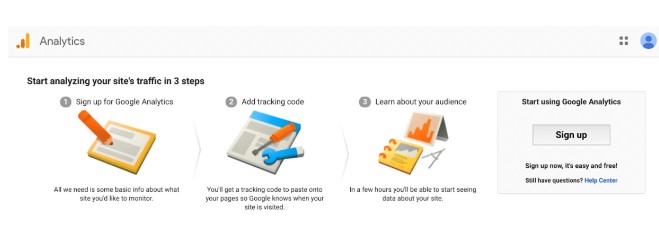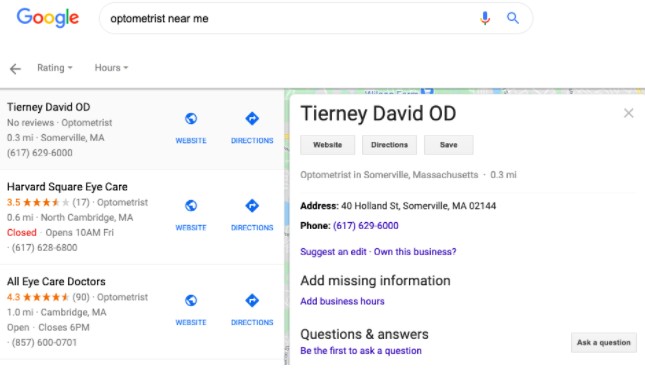Healthcare businesses need to maintain an active online presence to build consumer engagement, loyalty, and satisfaction. Digital marketing enables physicians and health specialists to showcase their services to a wide audience group, beyond their locality. Companies providing medical SEO services help hospitals, medical practices, and other medical entities implement effective healthcare digital marketing strategies to improve visibility, traffic, and rankings.
Incorporating the right digital marketing strategies can turn even a small healthcare practice into a booming business or to a number one choice within a specific geographical area. So, let’s dive in to see how you can do the same.
Using Digital Marketing to Promote Your Healthcare Practice – Benefits
Incorporating the right digital marketing tactics can help promote a healthcare practice in different ways. Digital marketing is not only a lucrative strategy for getting more patients, but also a cost-effective way of advertising a healthcare service. Here are some key benefits of investing in healthcare digital marketing –
- FREE – Better Visibility on Search Engines – As per reports, 1 out of 20 searches performed on Google is healthcare-related, including health and wellness tips, disease symptoms, diet tips, and more. With effective digital marketing and search engine optimization, your healthcare practice can increase its chances of becoming visible on Google’s first page. There are advanced free tools to get this result. For example, Google Analytics is one such tool to understand customer preferences and to create better user experience.
https://blog.hootsuite.com/ - Cost-per-Acquisition (CPA) – Implementing a digital marketing strategy to acquire new clients can reduce the total ad spend. According to a survey by US Vein Practice, medical centers spend over $314 and $348 per patient on print and TV ads, respectively. Cost per Acquisition is used in diverse paid marketing mediums such as PPC ads, affiliate, display, social media ads and content marketing. These ads are beneficial, as they enable businesses to calculate how much they can reasonably afford to pay for acquiring customers.
- Increased Patient Referrals – Online marketing tactics involve incorporating several professional tools and software that can scale your campaign for utmost performance and drive quality leads to your healthcare practice.
Here are some free tools you can consider to increase performance and drive quality leads.
- Google Alerts
- Hootsuite and Buffer
- Followerwonk
- Ubersuggest
- WordPress
- Google Trends
- Canva
- Readability
- Hemingway
- SumoMe
- Location-based Targeting – Digital marketing offers healthcare practices the opportunity to target a specific demographic, including age, sex, location, and more. Relating to patients will be easier, and patients can get a more personalized experience.Location-based targeting tools include
- Geotargeting
- Geofencing
- Beacons
Top social media tools you can consider include
- Animoto
- Feedly
- BuzzSumo
- Native Analytics
- Unsplash
- Lightroom
- Kicksta
- Canva
- Retouchup
Digital Healthcare Marketing – Key Strategies
Digital marketing has gained huge traction as people turn online to get quick, instant responses and communicate with specialists from their comfortable environment. As per a recent survey conducted by McKinsey, 75 percent of respondents said that they want to use digital healthcare services. Here discussed are the top digital marketing techniques that help expand the growth of healthcare services in the online space –
- Convert the Healthcare Website into a Digital Hub –Reports suggest that almost half of patients booking appointments online cite a clunky website or having to wait too long as a pain point. About 60 percent of patients want to be reminded about their appointments on their phones. A clean digital experience is important — and that starts with having a responsive website.
For instance, when prospective patients click on the search results, if they have any trouble viewing it on mobile or finding the pages they need, the higher the chances of them moving to the next listing in the search results. In short, the website must be mobile optimized and filled with pertinent information.
Prospective clients searching for information must be able to find the page they want within a few clicks and be satisfied with the information. The ultimate goal is for them to schedule an appointment either online or from their mobile device.
- Implement SEO Best Practices across Pages –Implementing a highly targeted SEO strategy increases your overall web presence. Try to research keywords to find the right ones that patients, physicians, and healthcare professionals may use to search for your healthcare organization. For instance, you can use keyword tools like Ahrefs to determine the competition surrounding key healthcare industry buzzwords.
Add an FAQ section within the website that includes general questions about your healthcare practice and physicians, and also take some time to point out symptoms that patients might be experiencing. For instance, a question could be like – “Do I have glaucoma?” and the answer would describe the symptoms and end with an optometrist’s phone number to schedule an appointment, since glaucoma requires a detailed medical diagnosis.Having detailed and relevant information about glaucoma on your website would give it a higher ranking. Moreover, it may also have a chance of ranking in Google’s Featured Snippet section, which is often the very first search result. In addition, choose a relevant keyword for each of the website’s pages, including social and blog posts, as well as other content the healthcare practice publishes.
- Focus on Local SEO – As search engine optimization and user experience go hand in hand, implementing an efficient local SEO strategy will be beneficial.Local SEO involves creating keyword lists that are specific to a business area. Keywords should contain a general term and a geographic term. For example, if you are a chiropractor from New York, then a potential localized keyword could be “back pain relief in New York”. The content of the website and blogs should also be optimized for local SEO. Your healthcare practice needs to have a Google My Business profile, so Google knows exactly where you are. Make sure that the business listing sites have the correct information.
- Remain Updated with Google Changes – Algorithm changes can have a significant impact on SEO. Therefore, remaining updated with the algorithm changes we have is crucial to adjust the SEO plan. Generally, Google uses a complex algorithm to determine search engine rankings.
As Google wants to provide its customers with the best product, they regularly update the algorithm to improve the search experience. In fact, over the past few years, Google has integrated artificial intelligence into the algorithm to better understand search intent. They implemented Bidirectional Encoder Representations from Transformers (BERT) that help analyze the conversational language used in search queries.
Many queries now come from vocal queries through a cell phone or personal assistants such as Siri and Alexa. In short, the final goal is to better understand even the minor nuances of language to provide more accurate search results.
- Create a Google-friendly Website – When people have a healthcare concern, Google search is used. Most queries don’t end in a question mark, now that Google has begun to suggest answers based on an uncompleted query. While this is great for speed, it’s a hindrance to healthcare businesses that answer questions on their website.
This can be solved by optimizing the business website so that it can show up on Google. First, create a Google Business Profile via Google My Business – that provides a snapshot of the healthcare business. It allows entering vital information customers want to see, such as location, price range, and website, in a snapshot.
Image Source https://blog.hubspot.com
It is important to fill this section out so organic searches, like “optometrists near me,” can locate your specific page if your business is within range. It can also help your site start obtaining online reviews, so that happy and satisfied customers can post reviews about what they love or about the type of services offered. Once the profile is set up, use keywords on the website so it has a chance of ranking higher for search queries.
- Email Marketing – Contact forms and newsletter signups are a unique way to keep potential patients up-to-date on what’s going on within your healthcare business. A weekly or monthly newsletter set up will help enhance user experience. Simply from being able to keep in touch with your audience without relying on Google to find them is great. With them on your list, you have a big opportunity to nurture, and constantly use this list to grow your business.
- Include Multimedia to Encourage Action – Include conversational videos that explain common issues within the healthcare profession. Including a video that concludes with, “Schedule a consultation in 10 minutes!” presents a strong call to action (CTA). If that CTA is hyperlinked to the page for booking appointments, it would be easy for someone already thinking about such a specific service to book from where they are watching. Create a video on your YouTube page, website, and any social media page. Provide helpful resources in the video, like where the healthcare practice is located, contact information, and hours of operation – to avoid the need for prospects to search for extra resources before seeking an appointment.
Image Source – https://blog.hubspot.com/
- Use Social Media Platforms to Engage with Prospective Patients – Social media marketing allows hospitals and healthcare practitioners to target their desired demographics, such as age, sex, and location. Patient research is an important part of healthcare digital marketing. You can have separate pages on social media platforms like Facebook, Instagram and Twitter. Use these social media pages to keep people updated with key happenings related to your business. Many times, people tend to leave messages and comments on these pages, both positive and negative. Respond to both and try to turn the negative to a positive through excellent customer service.
The US healthcare industry is constantly evolving, creating several opportunities as well as challenges for healthcare marketers. Now, the focus is on a healthcare delivery model that is based on patient satisfaction, good outcomes, and transparency. Establishing a strong online presence is critical to the growth of any healthcare practice as it allows reaching out to a wider audience. User experience and brand reputation will remain the most important factors for a successful digital marketing strategy. Relying on professional healthcare digital marketing services could help implement innovative digital marketing strategies to build and grow your healthcare business.








